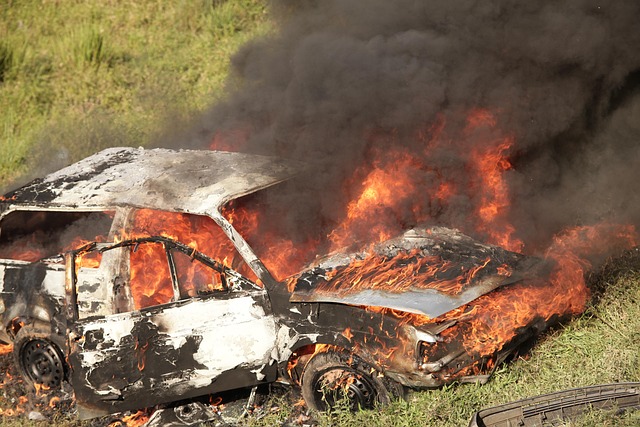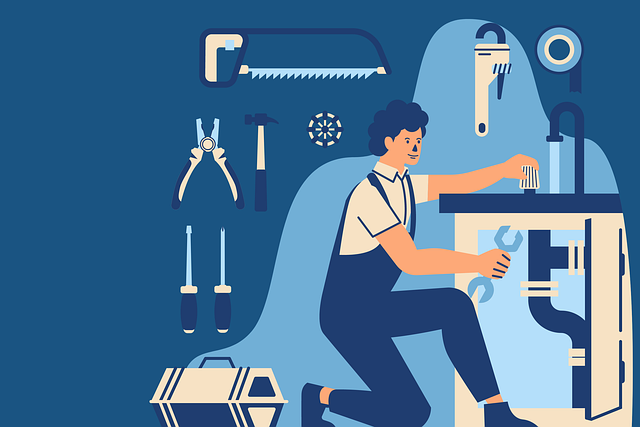A burst pipe is a serious home emergency requiring swift action. Emergency plumbing services offer crucial support, responding quickly to contain leaks, assess damage, and provide efficient repairs. These professionals utilize advanced techniques and materials while maintaining clear communication throughout the process. Proactive measures like adequate heating, insulation, leak checks, drainage clearing, and temperature monitoring can significantly reduce pipe burst risks. Regular maintenance by emergency plumbing services is key to minimizing damage from clogs and extreme temperatures.
In the face of unexpected pipe bursts, quick action is crucial. This comprehensive guide delves into the world of emergency plumbing services, shedding light on their significance in mitigating damage and restoring homes. From understanding the impact of burst pipes to discovering what professional repair services entail, we equip homeowners with essential knowledge. Learn effective prevention strategies to safeguard your property and reduce potential losses. Embrace proactive measures to navigate these emergencies seamlessly.
- Understanding Emergency Plumbing Situations and Their Impact
- What to Expect from Professional Emergency Pipe Repair Services
- Tips for Preventing Burst Pipes and Minimizing Damage
Understanding Emergency Plumbing Situations and Their Impact

In many households, a burst pipe is considered one of the most urgent and stressful home emergencies. This sudden occurrence can lead to significant water damage, affecting not only the affected area but potentially the entire property. Prompt action is crucial in mitigating potential disasters; here’s where emergency plumbing services come into play.
Understanding the severity of such situations is essential for homeowners. Burst pipes often result from freezing temperatures, aging infrastructure, or faulty installations. When a pipe breaks, it can create a chaotic scene with gushing water and possible structural damage. That’s when specialized emergency plumbing teams are required to respond swiftly. Their expertise lies in containing the leak, assessing the extent of the damage, and providing efficient repairs to restore order and prevent further complications.
What to Expect from Professional Emergency Pipe Repair Services

When a burst pipe strikes, it’s crucial to call in professional emergency plumbing services as soon as possible. These experts are trained to handle such situations swiftly and efficiently, minimising water damage and potential secondary issues like mould growth or structural harm. What you can expect from these services is a swift response, often within minutes of your initial call. They arrive equipped with specialised tools and knowledge to assess the burst pipe’s location, size, and severity.
Professionals will then provide clear communication throughout the repair process, explaining each step to help reduce any stress or uncertainty. They use advanced techniques and high-quality materials for repairs, ensuring the pipe is fixed properly and the water flow is restored safely. Additionally, many emergency plumbing services offer 24/7 availability, guaranteeing round-the-clock support during unexpected emergencies.
Tips for Preventing Burst Pipes and Minimizing Damage

To prevent burst pipes and minimize damage, a few proactive steps can go a long way. First, ensure your home is adequately heated during cold weather to keep water from freezing inside pipes. Insulating exposed pipes, especially in unheated areas like garages or crawl spaces, can also help prevent freezing. Regularly checking for leaks and addressing them promptly is crucial; even small drips over time can lead to significant water damage.
Additionally, maintaining clear drainage systems and gutters is essential. Clogged drains can cause excess water to back up, putting pressure on pipes and increasing the risk of bursts. Regular maintenance by an emergency plumbing service can help keep your drains clear and prevent potential disasters. Keep a close eye on pipes in areas prone to extreme temperature changes, such as near exterior walls or foundations, and consider using heat tape or insulation to offer extra protection.






